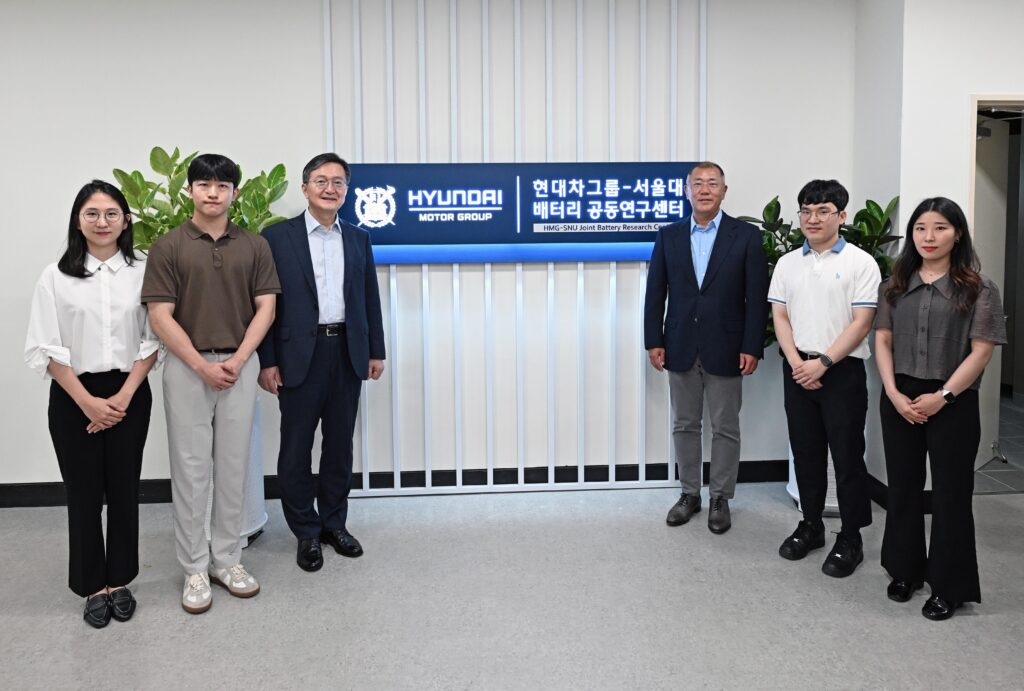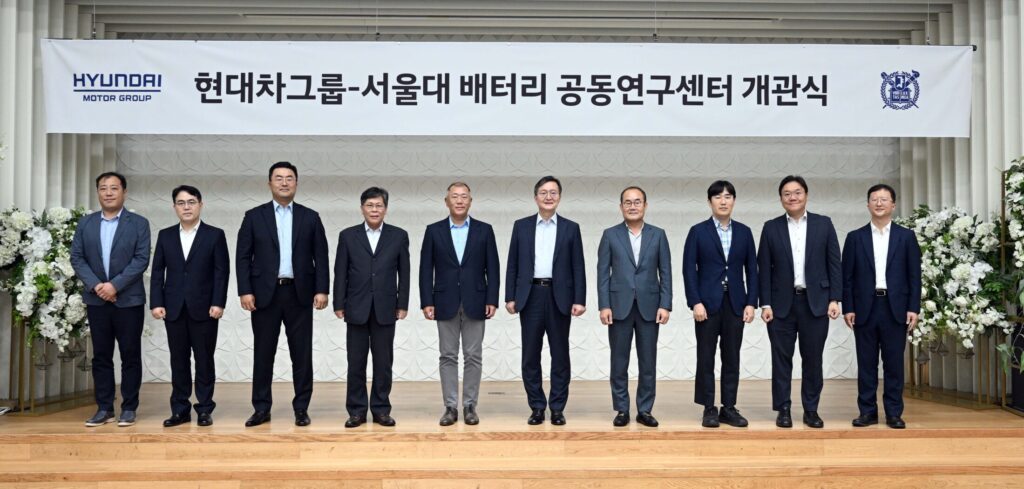A new battery development facility has been opened by Hyundai Motor Group at Seoul National University (SNU). The resource was inaugurated recently in a ceremony attended by top executives from Hyundai and the university. Hyundai aims to invest over ₩30bn in the hub by 2030.
Research at the Joint Battery Research Center will be both experimental and applied, with the ultimate aim of developing mass production technology. Hyundai notes that in the case of general industry-academia research, additional time and cost will inevitably be needed to apply the results to mass-produced products.
A total of 22 joint research projects are planned across four divisions: lithium metal batteries, solid-state batteries, battery management systems and battery process technology. Fourteen of the 22 research projects will be related to lithium metal and solid-state batteries, focusing on the development of next-generation batteries; 21 professors and master’s- and doctorate-level talents from eminent Korean universities will participate in the research.
Naturally, extending EV range and shortening charging time will be central focuses, and research on battery condition monitoring and innovative process technology will also be carried out. In the area of lithium metal batteries, studies will look at high-durability lithium-electrolyte material element technology and shape analysis to minimize deterioration, while in the field of solid-state batteries, research will be conducted on sulfide-based anode materials, electrode/electrolyte coating methods and ultra-high energy density cathode active materials.
To conduct this advanced research, the center is outfitted with research infrastructure similar to the equipment at the Hyundai Motor and Kia R&D centers, including precision battery analysis equipment, high-precision rheometers, cell manufacturing equipment, and impedance measuring devices.
Professor Jang Wook Choi, an esteemed expert in battery science, will head up the hub. Researchers from Hyundai Motor and Kia will also be dispatched to the center to participate as members of the joint research team, working in synergy to share expertise with the academic team as well as other battery experts from South Korea. Through consultations and seminars on battery technology, insights and development directions will be discussed. A consultative body will be formed regularly to share information on global battery industry trends and results.
Hyundai aims to build up the battery industry in South Korea to become one of the world’s leading regions and is fostering talent in the battery sector. It is also creating a pipeline for next-generation engineers by operating various industry-academic cooperation programs in collaboration with eminent universities in Korea.
The Joint Battery Research Center began to take shape in November 2021. Situated within the expanded Institute of Chemical Processes at SNU, it spans three floors (901m2 ) and will consist of seven laboratories and conference rooms.
Hong Lim Ryu, president of Seoul National University, said, “The Joint Battery Research Center will be the starting point for battery technology with improved performance and robust safety in line with Hyundai Motor Group’s pre-emptive innovation in the field of electrification. We expect that the best faculty and graduate students will create synergy with Hyundai Motor Group’s competent researchers, laying the groundwork for various innovations ranging from the basics of batteries to applications.”
Hyundai Motor Group executive chair Euisun Chung said, “Our mission to develop a diverse range of mobility solutions equipped with advanced batteries is driven by our strong commitment to a sustainable environment for future generations. Through pioneering joint research and development efforts, we hope to empower all researchers to lead the way in propelling the transition to electrification of the mobility industry.”



